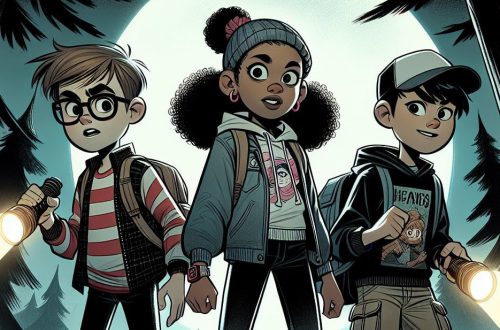
Plot Twists & Deadlines: The Fun and Challenges of Writing a Novel for My MFA Thesis
The Fun Part: Living in the World You Create
One of the best things about writing a novel for your thesis is the freedom to dive deep. You’re not just writing a short story or a scene—you’re building an entire world. For me, that meant:
- Sketching maps of imaginary towns. I tried using software to do this, but I reverted to pencil and paper.
- Creating magical rules, boundaries, and events that made sense (most of the time),
- And getting to know my characters like they were real kids I might’ve met in 1978.
There’s something magical about watching your story grow from a few scribbled notes into a full manuscript. Every chapter felt like a new discovery. As I learned more about the world and the characters, I found myself revisiting earlier scenesto make improvements from my discoveries.
The Challenge: Structure, Structure, Structure
Here’s the thing: writing a novel isn’t just about having a great idea. It’s about sustaining that idea over 50,000+ words. That means:
- Figuring out pacing (Is this scene dragging? I certainly had this problem in Thesis I (the first half of the novel), but improved in Thesis II (the second half of the novel). Did I just skip over something important?),
- Managing subplots (Wait, what happened to that character from Chapter 3?) – did I expand upon the idea or drop the ball? I dropped the ball a few times for sure.
- And making sure the emotional arc lands just right.
In a workshop, you might only share a few chapters at a time. But when it’s your thesis, you have to think about the whole picture. That’s where outlining, revising, and sometimes rewriting entire sections comes in (Thesis III).
The MFA Clock Is Ticking
One of the biggest challenges? The deadline.
An MFA program doesn’t wait for your muse to show up, or wait around while you don;lt feel like writing. You have to write whether you feel inspired or not. That taught me discipline and how to write through doubt. I had a serious issue with self-editing as I wrote. I was able to improve my word count by just letting the words flow, whether it was garbage or not. Editing can happen later.
There were days I stared at the screen, convinced the story was falling apart or going off course. But, then I’d remember why I started: because I wanted to tell a story that 12-year-old me would enjoy.
What I’ve Learned
Writing a novel for your MFA thesis is like casting a long, complicated spell. It takes time, focus, and a little bit of magic. But it’s also one of the most rewarding creative experiences I’ve ever had.
Thanks for reading!
If you’re in an MFA program (or thinking about one), and you’re dreaming of writing a novel: go for it. It will take a lot of hard work, but it will be worth it!
Here is a link to the program I completed at SNHU.
Dare to subscribe to my newsletter?


You May Also Like

The Importance of a Positive Message in Fiction
December 2, 2024
Building Worlds for Curious Minds: Writing Middle Grade Fiction
July 18, 2025